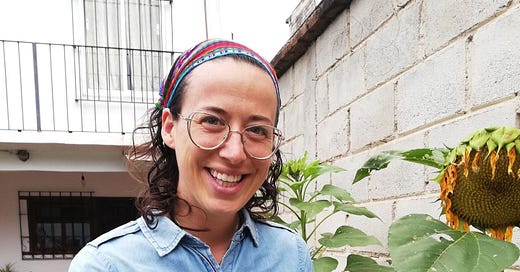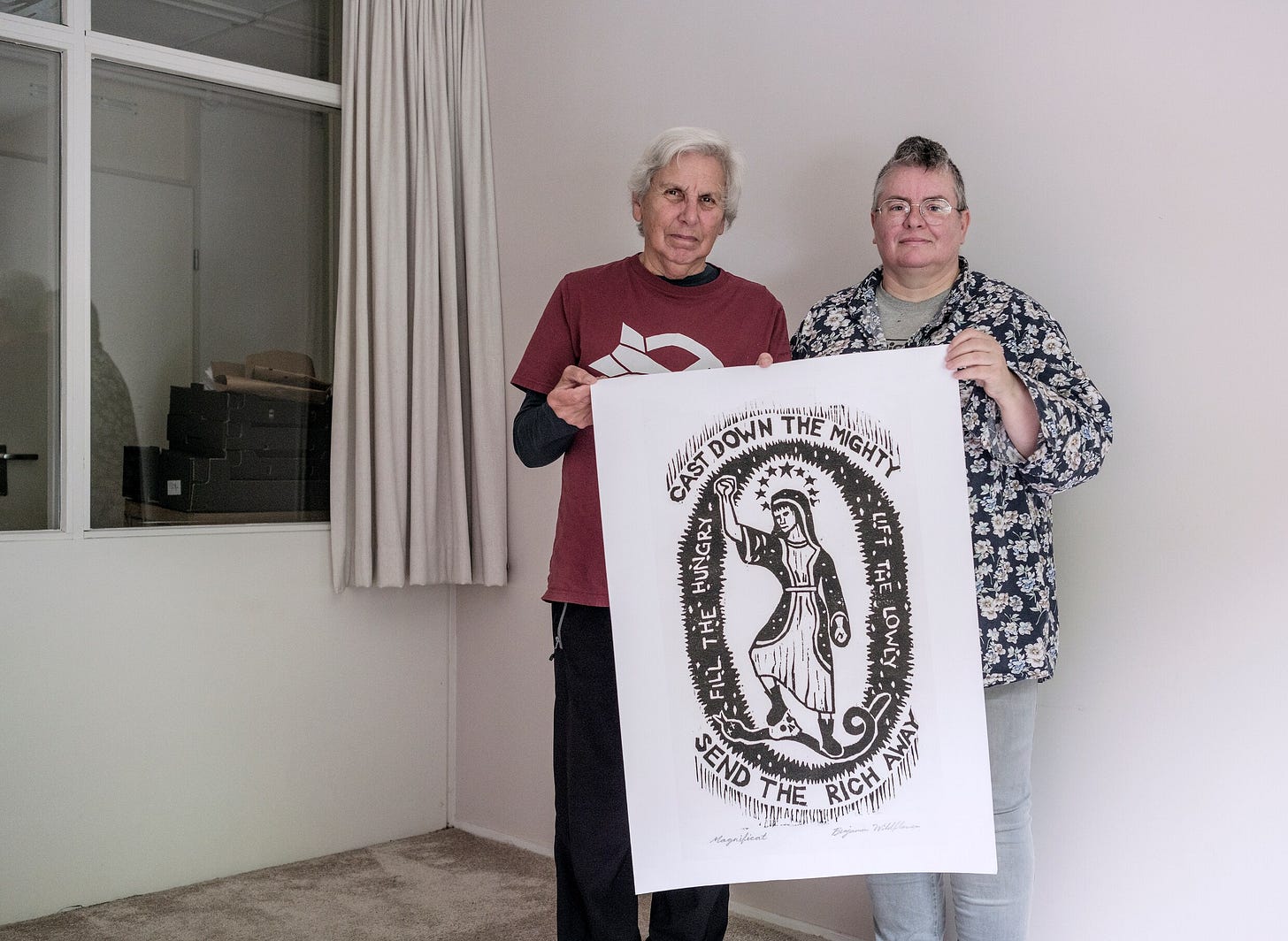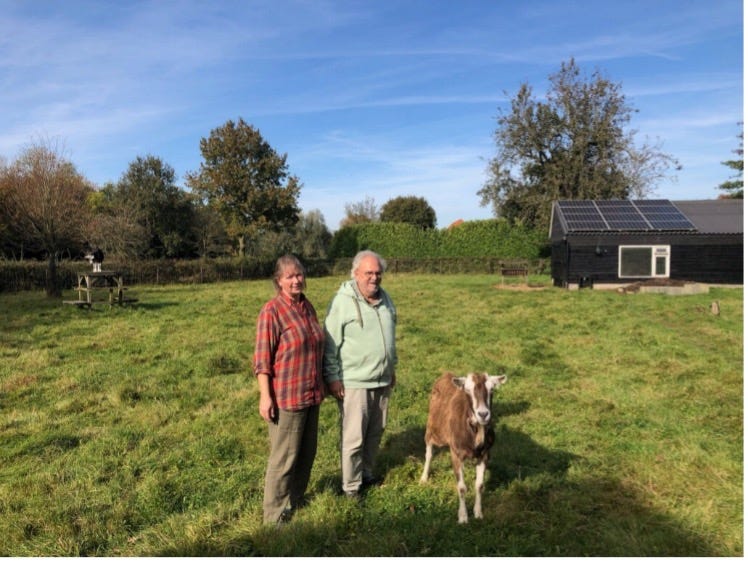Yesterday, the Office of Readings for Ash Wednesday included a reading from Isaiah 58:
Do you call this a fast,
a day acceptable to the Lord?This, rather, is the fasting that I wish:
releasing those bound unjustly,
untying the thongs of the yoke;
Setting free the oppressed,
breaking every yoke;
Sharing your bread with the hungry,
sheltering the oppressed and the homeless;
Clothing the naked when you see them,
and not turning your back on your own.
These commands for the “acceptable fast” echo the Aims and Purposes of the Catholic Worker—and Chapter 25 of the Gospel of Matthew—the command to offer hospitality to each person you meet, and to do justice: offering freedom to the oppressed.
Catholic Workers across the world have been engaged in this acceptable fast for decades. Our friends at Jeannette Noelhuis in Amsterdam have shared English translations of articles from their newspaper, ‘N Korrel Zout—A Grain of Salt, originally written in Dutch. These articles share their testimony of sharing bread, breaking the yokes of bondage, and not turning their backs on their own.
We are delighted to republish these beautiful essays on the work of hospitality, resistance, and in "dying a little, to be reborn more, here in Roundtable.
peace,
Renée
‘Unless the grain of wheat fall into the ground and die, it remains alone. But if it die it produces much fruit.’
Martin Luther King died daily, as St. Paul said. He faced death daily, and said a number of times that he knew he would be killed for the faith that was in him. The faith that men could live together as brothers. The faith in the Gospel teaching of non-violence. The faith that man is capable of change, of growth, of growing in love.
— Dorothy Day, on the death of Martin Luther King, JR. The Catholic Worker, April 1968
On Vocation
by Nikki Apeldoorn, ‘N Korrel Zout, November 29, 2024, Volume 36, No. 2
A well-known joke within the Catholic Worker movement is that many of its members are neither Catholic nor do they work.
However, since I moved here two and a half years ago, I have always worked—just like everyone else—if we do not limit our understanding of work to the definitions given by neoliberal capitalism.
And, recently, I have also officially become (a rebellious) Catholic—something I never expected but which, at the same time, unfolded naturally and organically. This has everything to do with my Dominican vocation, which I will share more about in this article.
Vocation is a big word, and it may sound very religious, but I do not mean it that way. To me, vocation is about everything one feels drawn to in life, in all its different forms, colors, and textures. What fits you? How do you feel called or invited to contribute, in the short time that you are part of this breathtaking, complex panorama of life? Is the life you are living faithful to the life that wants to live in you? These questions constantly accompany me and repeatedly lead me onto remarkable paths, rooted in ancient traditions, following those who have gone before me.
Dominican Lay Community of the Netherlands
My Dominican journey began in Guatemala, in a community of Dominican missionary sisters. Religious life in that specific form turned out not to be for me, but the Dominican vocation never left me, nor did my longing to live in community, following Jesus. After a profound experience in Guatemala, I left, trusting that I would be able to live out my vocation in other ways.
The Ruach (Spirit) led me to the Catholic Worker community and, not long after, to the Dominican Lay Community of the Netherlands (DLN), where I could further deepen my understanding of Dominican spirituality and way of life.
The DLN was founded in 1999 for and by people who seek to embody the Dominican inspiration in their work and personal lives. It is a continuation of the "Third Order," of which Catherine of Siena was also a part. In September 2022, I began my two-year formation as an aspirant, a beautiful process of discernment in which I eventually decided to receive the sacrament of confirmation—affirming the faith I had already been living for many years. On May 19, Pentecost Sunday, and exactly eleven years after my baptism in a Protestant church in Alkmaar, I received my confirmation in the Abbey of Egmond-Binnen.
This decision came as a surprise to many—some thought I was already Catholic, while others could not reconcile my ecofeminist convictions with membership in such a patriarchal institution.
I, too, experience this contradiction. I have long felt at home in the traditions, rituals, and symbols of certain (especially small, humble, rebellious, liberation-theology-rooted) Catholic churches. At the same time, I also feel estranged from and cannot fully imagine myself as a willing member of this patriarchal institution. I cannot justify it, nor can I truly apologize for it. When I took this step on that beautiful Pentecost Sunday, I renewed my commitment with passion and dedication—to do everything in my power to undermine the patriarchal, hierarchical structures within this broken community and to keep seeking ways for the Gospel to flourish.
Voices from the Margins
The Dominican community and spirituality guide me in this search. They provide me with a tradition, a story, and a way of believing and living that contrasts with the dominant status quo of contemporary society, where I often feel lost and out of place. Dominican spirituality helps me navigate this beautiful but often chaotic world, to be attentive to the signs of the times, and to engage in the pursuit of justice, peace, and care for the Earth. It gives meaning to live simply in service of truth while continually discerning how that truth serves life—all life. Another world is possible!
Even in my studies of ecofeminist theology and daily activism, Dominican spirituality plays a role, especially because the Dominican sisters in Guatemala were the first to take me to the streets—to make our voices heard and disturb the established order. The Dominicans are preachers, and for me, preaching means not only speaking from my own perspective but above all, seeking out voices from the margins, the perspectives that are too often unheard.
Making Profession
It is a grace-filled experience to be part of a community. I still feel the same fire of vocation that Jeremiah describes so beautifully (Jer. 20:9), and I am grateful that this vocation continues to take new forms and evolve. The Dominican seed that was planted in Guatemala seems to have found fertile ground in the DLN, and on October 27, I was able to make my temporary profession in the Huis van Dominicus in Utrecht. I promised to live according to the Rule of the Lay Dominican Communities for the next three years.
This is a significant decision after a two-year formation process, but in many ways, I feel I have been moving toward this choice for much longer. A choice that, ultimately, is one we must make again and again, every day. It feels as though Jesus is always asking us anew—through different people and more-than-human beings—the same question he asked Peter three times after his resurrection (John 21:15-19):
"Do you love me?"
This question comes to me through every person who lives here—unhoused, often undocumented—or knocks on our door, as well as through those far away, with whom I am also inextricably connected, and who too often suffer under our way of life. I hear this question in the more-than-human world—in the trees, the waters, the Earth itself.
I pray that my life may be an answer to that question—not only in a personal and spiritual sense but also in a socio-ecological and political sense. And I pray that I may live this out with, from, and within the communities of the DLN and the Catholic Worker.
Nikki Apeldoorn is a student at the Free University of Amsterdam, where she is doing a master's degree in theology with a focus on ecofeminist theology. She spent years living and studying in Guatemala, where she was introduced to indigenous spirituality and ecofeminism. She is an aspiring lay Dominican and core resident of the Jeannette Noel House community - part of the Catholic Worker movement - where she lives and works with undocumented migrants from different parts of the world.
What I’ve Learned from Civil Disobedience
by Susan van der Hijden, written in Rohrbach prison, mid-July 2024
After six weeks in Rohrbach prison we seem to have reached the top of the prisoner society, the elite so to say, the “open” wing, where the cell doors are open some hours of the day, during which we can shower and use the phone whenever we want, talk to, play games with and visit others in their cells. Privileges for being well-behaved and able to play nicely with others.
We are the bourgeoisie of the prison.
There are, of course, still rules, times we are locked in, and guards. Those restrictions are clearly visible, even though they are covered in a sugary layer of politeness— “Sorry, I don’t make the rules,” and “I admire what you are doing,” even, once: “I am ashamed of my country for locking you up.”
That sugar coating however can not begin to cover the theft of freedom the injustice of the system and the suffering it causes to the women here.
Is this only in prison? How different is it really outside in the “free” world? How free are you, dear reader?
We get many letters saying how brave and strong we must be and “I could never do what you are doing.” They make me feel very uncomfortable because I am not brave when it comes to dancing, wearing shorts in public, or other, darker, things I do not even dare to mention here. I am always trying not to attract too much attention, to contain my madness, to fit in, out of fear of becoming unaccepted, unloved, an outcast even from my own community.
Although I have been moving (slowly) to the edge of society all my life, I still cling to a certain normalcy and am very attached to a certain level of comfort, physical and psychological.
Getting arrested and going to jail for protesting nuclear weapons is more or less accepted in my circle of friends. Even though not everyone understands all of it, they do (try) to support it. Cutting a fence and entering a military base is therefore not much braver than, say, going to karaoke with a group of friends.
I admire the young women on the other wing who have not yet resigned themselves to prison life but rather are resisting it daily. They might be unruly, throwing things, cursing at the guards, the rules, the sky. They at least can still imagine a better, freer way of being, and have not stopped fighting for it. Yes, they are scary and ferocious but my god – they are alive!
Daniel Berrigan says in “The Raft is Not the Shore” that if you speak up for humanity, you are unwelcome everywhere. This argument suggests that practically everyone today should be either in exile, jail or in some kind of trouble. Thich Nhat Hanh adds that this shunning also happens if you try to become yourself: to unite your thinking and your aspirations. Jesus says similar things. If we want to follow him, we have to be prepared to leave our family and old ways behind. We will have to become exiles.
Every day we are challenged to die a little so we can be reborn and be more ourselves. Be it by wearing shorts and risking laughter at your pasty-white, hairy legs, or breaking a law that protects death-dealing weapons.
Every time we choose to be free, especially when it goes against the (perceived) conventions of the group we belong to, we die inside and are born again, a little closer to being our real and free selves, a little closer to the kingdom of God.
How One Couple Practices Hospitality
Finally, ‘N Korrel Zout shared an interview with Jenneke and Cees, friends of Noëlhuis who have opened their house to neighbors and strangers in need throughout their entire marriage.
How did this affect your family and personal life?
Jenneke: The children took it almost for granted. They never complained about it. It did them no harm and they didn’t hold it against us.
Cees: A boy who lived with us once said, ‘Cooking is so easy here. You don't have to spend four hours looking for firewood.’ That you spend half a day every day looking for firewood to cook food doesn't occur to you. Such encounters broaden your view immensely.
Read the full interview at catholicworker.org.
About us. Roundtable covers the Catholic Worker Movement. This week’s Roundtable was produced by Renée Roden and Jerry Windley-Daoust. Roundtable is an independent publication not associated with the New York Catholic Worker or The Catholic Worker newspaper. Send inquiries to roundtable@catholicworker.org.
Subscription management. Add CW Reads, our long-read edition, by managing your subscription here. Need to unsubscribe? Use the link at the bottom of this email. Need to cancel your paid subscription? Find out how here. Gift subscriptions can be purchased here.
Paid subscriptions. Paid subscriptions are entirely optional; free subscribers receive all the benefits that paid subscribers receive. Paid subscriptions fund our work and cover operating expenses. If you find Substack’s prompts to upgrade to a paid subscription annoying, email roundtable@catholicworker.org and we will manually upgrade you to a comp subscription.








